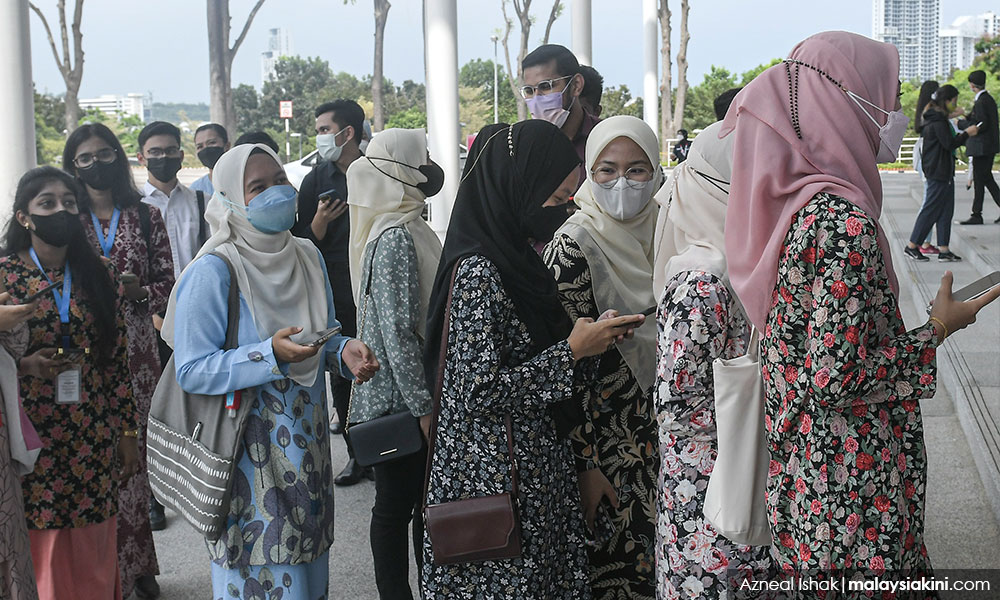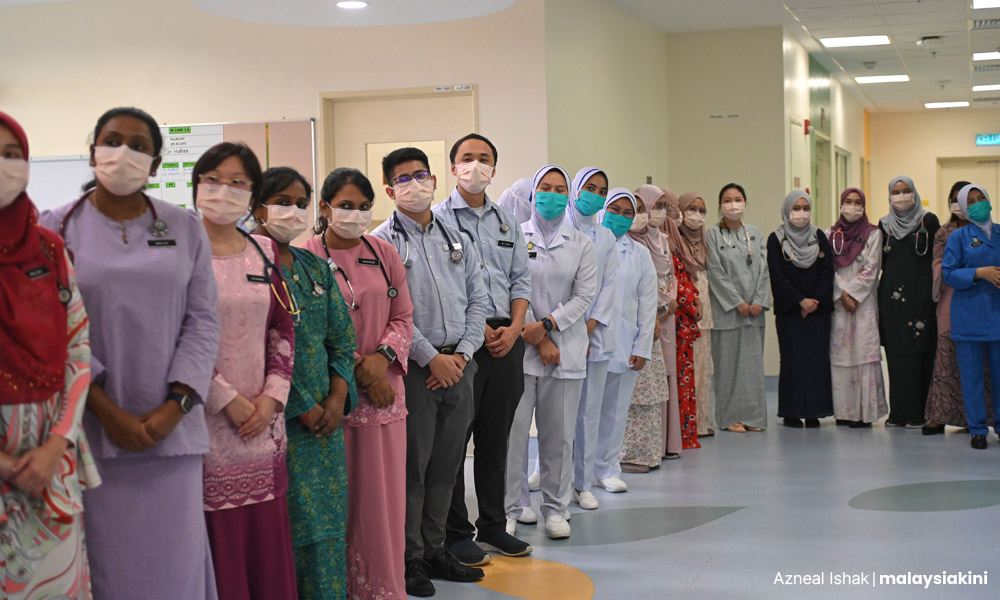The recent announcement by Prime Minister Anwar Ibrahim that the government is mulling reducing working hours for mothers has an underlying message of gender stereotypes, women’s rights groups said.
According to them, although the premier’s announcement is filled with good intentions, one must understand that familial responsibilities do not fall just on the mother but are a collective duty.
Sisters in Islam (SIS) communications officer Aleza Othman told Malaysiakini that shorter working hours for women civil servants seem like a positive step to address the challenge of balancing work and family responsibilities.
However, it indirectly perpetuates gender stereotypes and inequalities, she said.
“Family care should not be exclusively seen as the responsibility of women - it should be equally shared between both parents.
“By focusing solely on women, this proposal ignores the needs of single fathers and reinforces traditional gender roles,” she said.

Echoing Aleza’s sentiment, Women’s Aid Organisation (WAO) senior research officer Barathi Selvam said that it is crucial to acknowledge childcare duties are not exclusive to women.
He said the strategy to tackle caregiving responsibilities and unpaid care tasks should involve challenging the conventional mindset that was inadvertently advocated by Anwar.
He added that although the intentions of the government may be noble, the proposal to reduce working hours and wages reveals a flawed understanding of care work and its underlying gender bias.
“Hence, a policy which recreates an already existing gender inequality will only serve to push women away from economic participation, relegating them to unpaid caregiving roles, which contradicts the goal of retaining, expanding, and attracting women into the workforce,” he said.
Women Centre for Change (WCC) programme director Karen Lai expressed grave concerns over the announcement’s potential implications.
She cautioned that the policy change could inadvertently reinforce and perpetuate gender inequalities on multiple fronts – within households, the workforce, and ultimately, across Malaysian society at large.

Lai argued that by discouraging women from entering the workforce or deterring their career advancement, the policy risks confining them to traditional gender roles and limiting their economic empowerment.
“The idea is premised upon a longstanding stereotype that women should be primarily responsible for domestic and care work in addition to their career outside the home, contributing to the ‘double burden’ they have to bear,” she said.
Exacerbates gender pay-gap
Lai also noted that this adjustment may involve lower pay, which reduces the income and economic status of women.
This would worsen the gender pay gap and their advancement in the workforce, she said, as well as affect their bargaining power within the family and society.
“Flexibility in working conditions to accommodate better work-life balance and family care commitments should be made available to both women and men, and men should also be encouraged to do their share of caring for their families,” she said.
Adding to Lai’s points, Barathi said according to the 2022 Malaysian Gender Gap Index, women earn approximately two-thirds of what men earn.
He added that Malaysia’s female labour force participation is 55.6 percent, while male participation is over 80 percent.

This aligns with data from Khazanah Research Institute’s 2018 study and Labour Force Survey 2022, he said, which found that nearly 63 percent of women identified household and family obligations as the reason why they were not in the labour force, compared to 2.3 percent of men who cited the same.
“Decreased wages would disproportionately affect individuals in lower income brackets, exacerbating socio-economic divisions stemming from gender-based wage gaps.
“This perpetuates traditional gender stereotypes, hindering women’s involvement in economically rewarding activities.
“The government should take proactive measures to establish high-quality and affordable care facilities in workplaces and community-based centres so that our children can grow in a conducive, safe, and healthy environment rather than relying on private institutions that hinder the involvement of low-income segments, which constitute the majority of the population,” he said.
According to Aleza, the announcement also sends the detrimental message that women belong at home, further perpetuating gender biases and inequality in the workforce.
She agreed that lowering women’s wages in exchange for reduced hours would exacerbate the existing gender pay gap.
“Instead of addressing the root causes of this disparity, such as unequal pay and limited opportunities for career advancement, the suggestion by the PM would widen the gender pay gap further.”
On International Women’s Day, national news agency Bernama reported that the study on the Civil Service Remuneration System will consider shorter working hours for women employees to enable them to better care for their families.
Anwar said this flexibility might involve different pay rates and that Malaysia would become the first country in the world to provide such flexibility to female civil servants, should the initiative be realised.
According to him, this requires a change from conventional thinking as there are women who have to leave their careers to take care of their families. - Mkini



No comments:
Post a Comment
Note: Only a member of this blog may post a comment.